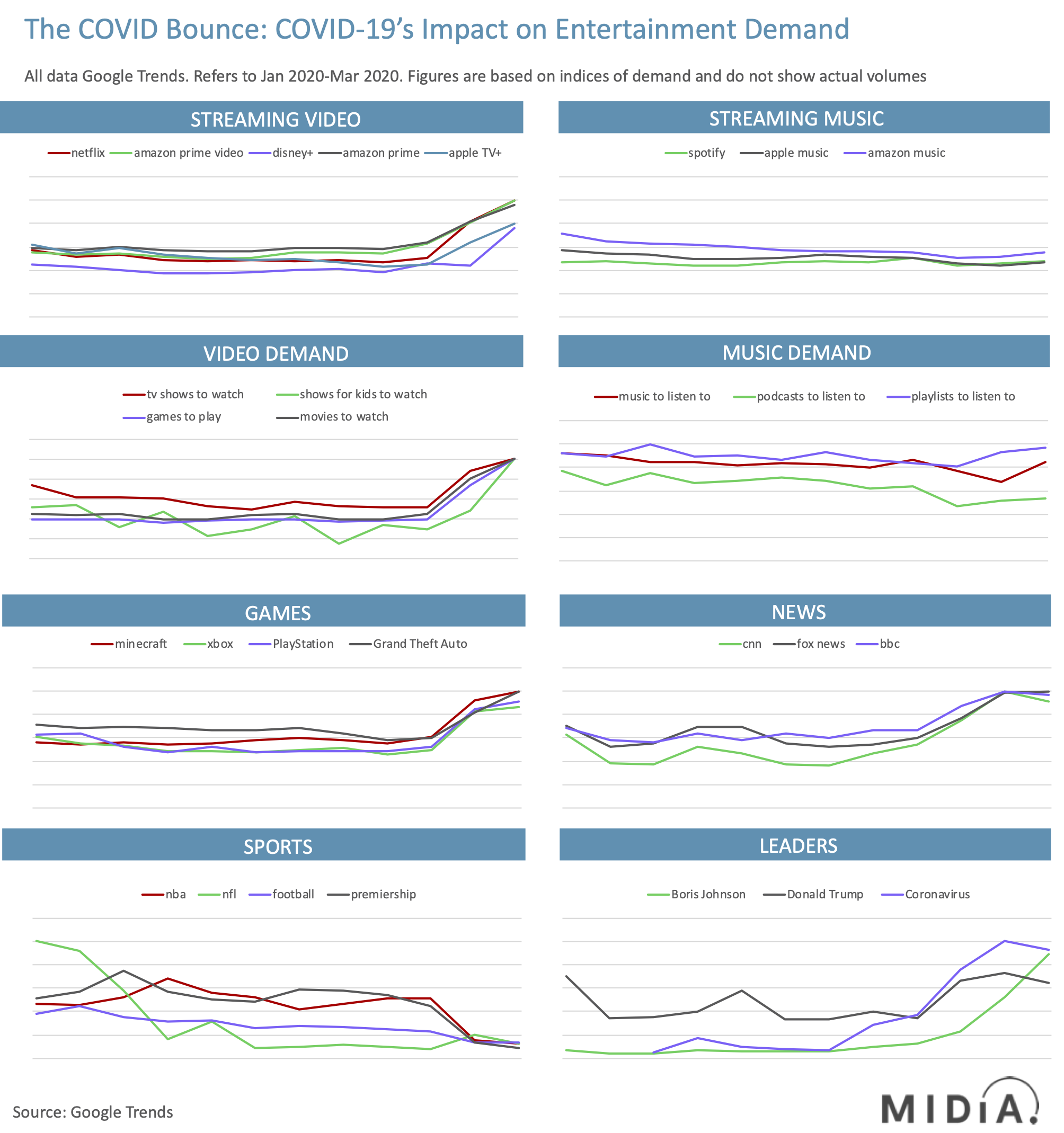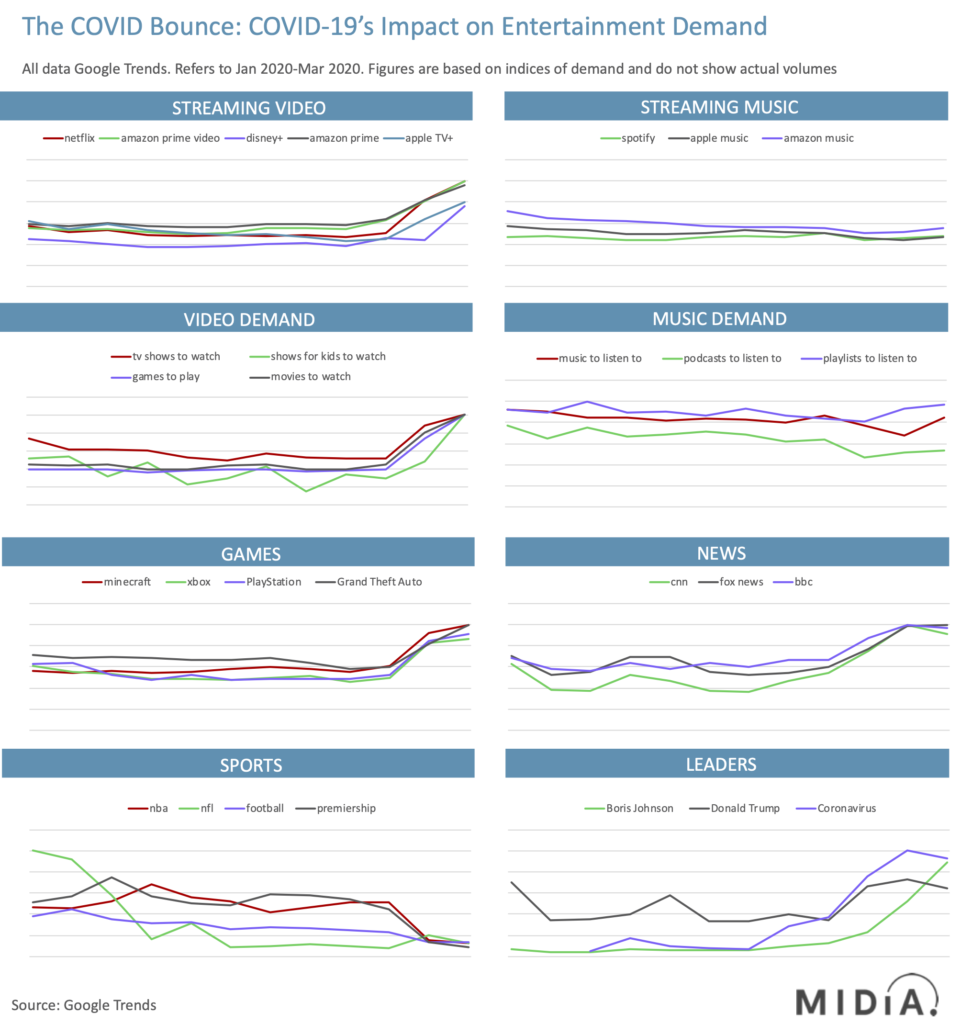The COVID bounce: How COVID-19 is reshaping entertainment demand


The economic disruption and social dislocation caused by the COVID-19 pandemic is not evenly distributed. Some business face catastrophe, while others thrive. The same is true across entertainment industries, ranging from a temporary collapse of the live business through to a surge in gaming activity. The extra time people have as a result of self-isolation has boosted some forms of entertainment more than others – with games, video, and news the biggest winners so far.

To further illustrate these trends, MIDiA compiled selected Google search term data across the main entertainment categories. The chart above maps the change in popularity of these search terms between the start of January 2020 up to March 27th. Google Trends data does not show the absolute number of searches but instead an index of popularity. These are the key findings:
- Video streaming: All leading video subscription services saw a strong COVID-19-driven spike, especially Disney+ the UK launch of which coincided with the first day of national home schooling
- Music streaming: Little more than a modest uptick for the leading music services, following a long steady fall – reflecting a mature market sector unlike video, which has been catalysed by major new service launches
- Video demand: With the mid- to long-term prospect of a lot more time on their hands, consumers have been strongly increasing searches for TV shows, movies and games to watch and play. The fact that ‘shows for kids to watch’ is following a later but steeper curve reflects the growing realisation by locked-down families that they have to stop the kids going stir crazy while they try to work from home
- Music demand: Demand for music has been much more mixed, including a pronounced downturn in streams in Italy. Part of the reason is that music is something people can already do at any time in any place. So, the initial instinct of consumers was to fill their newfound time with entertainment they couldn’t otherwise do at work/school. As the abnormal normalises music streaming will pick up, as the recent increase in searches for music and playlist terms suggests. Podcasts, however, look like they will take longer to get a COVID bounce
- Games: Games activity and revenues have already benefited strongly from the new behaviour patterns, as illustrated by the fast and strong increase in search terms. However, the recent slowdown in search growth suggests that the increase in gaming demand may slow
- News: The increased searches correlate strongly with the growth of the pandemic, but the clear dip at the end provides the first evidence of crisis-fatigue
- Sports: The closure of all major sports leagues and events has left a gaping hole in TV schedules and the lives of sports fans. The sudden drop in search terms shows that sports fans have quickly filled their lives with other entertainment and have little interest in keeping up with news of sports closures
- Leaders: Finally, Boris Johnson has seen his search popularity grow steadily with the pandemic, while Donald Trump’s has dipped

The discussion around this post has not yet got started, be the first to add an opinion.